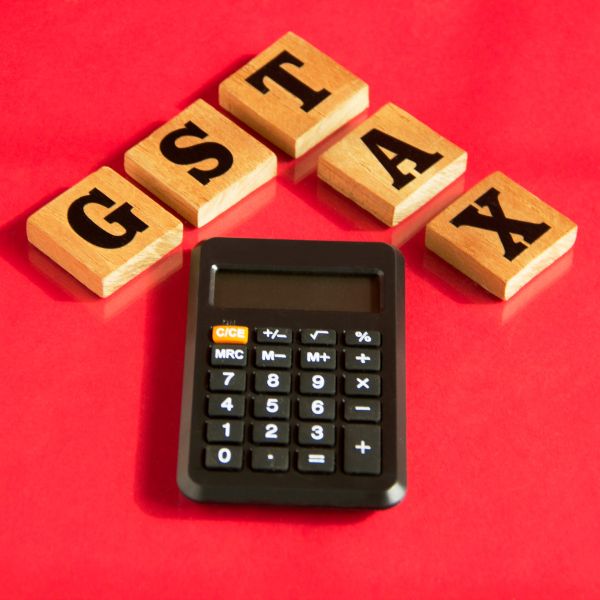
What is GST Return?
A GST Return is a regular filing of business transaction details and tax liability to the tax authorities under the Goods and Services Tax (GST) system. It involves reporting the sales, purchases, taxes collected, input tax credits claimed, and the amount of tax payable. The return ensures accurate compliance with GST regulations and facilitates the smooth flow of tax payments.
Who should file GST Returns?
- Registered Businesses: Businesses that are registered under the GST system are obligated to file regular GST returns. This includes entities such as sole proprietors, partnerships, limited liability companies, corporations, and other types of businesses.
- Suppliers of Goods and Services: Entities that supply goods and services, whether within the country or internationally, are typically required to file GST returns. This includes manufacturers, wholesalers, retailers, service providers, e-commerce sellers, and other entities engaged in the supply of goods or services.
- Importers and Exporters: Businesses involved in the import or export of goods and services are generally required to file GST returns. These entities need to report and pay GST on imported goods and claim refunds or credits for GST paid on exported goods.
- Input Service Distributors (ISD): ISDs, which are typically entities that receive invoices for services used by multiple branches or units of a company, are required to file GST returns to distribute input tax credit among the respective branches or units.
- Tax Collecting Agents: Agents appointed by registered taxpayers to collect tax on their behalf are required to file GST returns and remit the collected tax to the tax authorities.


How many returns are there under GST?
- GSTR-1: This return is used to report details of outward supplies or sales made by a registered taxpayer. It includes information on taxable supplies, exempt supplies, and exports.
- GSTR-3B: GSTR-3B is a monthly self-declaration return where businesses need to summarize their outward supplies, input tax credit, and make tax payments. It serves as a summary return for the payment of taxes.
- GSTR-2A: GSTR-2A is an auto-generated return that is generated based on the purchases made by a taxpayer. It reflects the details of inward supplies (purchases) as reported by the counterparty suppliers.
- GSTR-9: GSTR-9 is an annual return that provides a consolidated summary of the taxpayer's inward and outward supplies for the entire financial year. It includes details of supplies, taxes paid, input tax credit claimed, and other related information.
- GSTR-4: GSTR-4 is a quarterly return that is filed by composition scheme taxpayers. It includes details of outward supplies, taxes paid, and tax liability.
- GSTR-6: GSTR-6 is a return filed by Input Service Distributors (ISDs) to report the distribution of input tax credit among the branches or units of a company.
What are the different types of GST returns and the due dates to file them?
The types of GST returns and their due dates can vary depending on the country and the specific GST regime in place. However, I can provide you with a general overview of the different types of GST returns and their usual due dates based on the GST regime in India as of my knowledge cutoff in September 2021. Please note that these dates might have changed, so it's essential to refer to the official GST portal or consult with a tax professional for the most accurate and up-to-date information. Here are some of the common GST returns in India:
- GSTR-1: This return is for reporting outward supplies or sales made by a registered taxpayer. It is usually filed monthly and is due on the 11th day of the following month.
- GSTR-3B: GSTR-3B is a monthly self-declaration return where businesses need to summarize their outward supplies, input tax credit, and make tax payments. It is due on the 20th day of the following month.
- GSTR-2A: GSTR-2A is an auto-generated return that reflects the details of inward supplies (purchases) as reported by the counterparty suppliers. It is not directly filed by the taxpayer.
- GSTR-9: GSTR-9 is an annual return that provides a consolidated summary of the taxpayer's inward and outward supplies for the entire financial year. It is due by December 31st of the following financial year.
- GSTR-4: GSTR-4 is a quarterly return filed by composition scheme taxpayers. It includes details of outward supplies, taxes paid, and tax liability. It is due on the 18th day after the end of the quarter.

Late Fees for not Filing Return on Time
- Late fee for GSTR-1: If a taxpayer fails to file GSTR-1 (outward supplies return) by the due date, the late fee is Rs. 50 per day of delay for regular taxpayers and Rs. 20 per day of delay for nil filers.
- Late fee for GSTR-3B: For GSTR-3B (summary return), if a taxpayer fails to file by the due date, the late fee is Rs. 50 per day of delay for CGST (Central Goods and Services Tax) and SGST (State Goods and Services Tax) or Rs. 100 per day of delay for IGST (Integrated Goods and Services Tax) taxpayers.
- Late fee for GSTR-4: For GSTR-4 (composition scheme return), if a taxpayer fails to file by the due date, the late fee is Rs. 200 per day of delay (Rs. 100 per day for CGST and SGST).
How are GST returns filed or submitted?
- Access the GST portal: Visit the official GST portal provided by the tax authority in your country. In India, for example, it is the Goods and Services Tax Network (GSTN) portal.
- Log in: Use your registered credentials, such as your username and password, to log in to the GST portal. Ensure that you have the necessary permissions and access rights to file returns.
- Select the appropriate return form: Identify the specific GST return form that you need to file based on the type of return and the period for which you are filing. For example, GSTR-1 for outward supplies, GSTR-3B for monthly summary return, or GSTR-9 for annual return.
- Fill in the required details: Provide accurate information in the return form as per the guidelines and instructions provided. This may include details of your sales, purchases, input tax credit, and tax liability.
- Validate the data: Verify and validate the data you have entered to ensure accuracy and completeness. Most GST portals have built-in validation checks to identify any errors or inconsistencies in the data entered.
- Preview and finalize the return: Review the filled-in form and ensure that all the required fields are completed correctly. Make any necessary corrections or amendments. Once you are satisfied with the information provided, finalize the return.
- Submit the return: After finalizing the return, submit it electronically through the GST portal. Once submitted, you may receive an acknowledgment or reference number confirming the successful submission.
- Pay any tax liabilities: If there are any tax liabilities to be paid, initiate the payment process through the designated payment gateway or system integrated with the GST portal. Follow the instructions provided to complete the payment.
- Generate acknowledgment: After the successful submission of the return and payment of any tax liabilities, generate and download the acknowledgment receipt or filing acknowledgment. This serves as proof of filing the return.

Does GST have to be paid monthly?
In many countries with Goods and Services Tax (GST) systems, GST payments are typically required to be made on a monthly basis. Taxpayers are expected to file monthly returns and make the corresponding tax payment by the specified due date. These returns and payments cover the taxable supplies made, input tax credits claimed, and the tax liability for that particular month. However, it's important to note that the payment frequency may vary depending on factors such as the turnover of the taxpayer or specific provisions in the GST regime. Some countries may have quarterly or annual GST payment schemes for certain categories of taxpayers. To ensure compliance with the specific requirements of your country's GST laws, it is advisable to consult the official GST portal or seek guidance from a tax professional familiar with the GST system in your jurisdiction.
Process of GST Return:
- Keep Records: Maintain thorough records of each and every business transaction, including sales, purchases, costs, and taxes paid or collected.
- Choose the Return Period: Based on the kind of registration and turnover, choose the appropriate return period, such as monthly, quarterly, or yearly.
- In order to file a GST Return, gather information on sales, purchases, tax liabilities, and input tax credits.
- Accurately complete the GST Return form in the prescribed format and adhere to the formatting and data validation guidelines.
- Review and verify the GST Return for accuracy and compliance.
- Submit the GST Return form electronically within the specified deadline to the authorized GST portal.

Benefits of GST Return:
- Easy Compliance: GST Return eases taxpayer stress by expediting tax reporting and payment. This streamlines the compliance procedure.
- Taxes paid on purchases can be claimed as input tax credits by businesses, lowering their overall tax obligation and enhancing cash flow.
- Openness and Accountability: By requiring companies to keep correct records and submit information, the GST Return reduces tax evasion and promotes openness and accountability.
- Seamless Input Matching: The GST Return system enables input and output taxes to be seamlessly matched, lowering the possibility of mistakes and increasing the accuracy of tax computations.
- Improved Business Efficiency: With GST Return, businesses can streamline their tax-related processes, reduce manual paperwork, and focus on core operations, leading to increased efficiency.
- GST Return gives tax authorities thorough information about business transactions, enabling efficient audits and guaranteeing tax compliance.
GST Return Rules
The Goods and Services Tax (GST) system's rules and procedures for filing GST Returns are outlined in the GST Return Rules. These regulations outline the structure, frequency, and deadlines for submitting returns, as well as the data and materials that must be submitted. Input tax credit provisions, tax obligation modifications, and penalties for noncompliance are also included. To fulfil their tax duties and ensure complete compliance with the GST legislation, businesses must adhere to the GST Return Rules.

FAQ:
In order to disclose their business activities, tax liabilities, and input tax credits under the Goods and Services Tax (GST) regime, taxpayers must file a GST Return.
The basic rule is that all GST-registered individuals, businesses, and entities—including ordinary taxpayers, composition scheme taxpayers, and non-resident taxpayers—must file GST Returns.
The kind of registration and taxpayer turnover determine how often GST Returns must be filed. A monthly, quarterly, or yearly frequency is possible.
A GST Return typically includes details of outward supplies (sales), inward supplies (purchases), tax liability, input tax credits, and any other relevant information as per the specific return form.
It is only possible to claim an input tax credit if both the taxpayer and the supplier have successfully submitted their returns by the deadlines.
Penalties and interest costs may apply if GST returns are filed late. To prevent these effects, it's crucial to follow the deadlines specified.
Yes, GST Returns can be revised if any errors or omissions are identified after filing. However, revisions are subject to specific conditions and time limits prescribed by the tax authorities
An annual GST Return is an annual summary of the taxpayer's transactions for the entire financial year. It provides a consolidated view of the supplies made, input tax credits claimed, and tax liability.
Yes, taxpayers are required to maintain supporting documents such as invoices, bills, credit/debit notes, and other relevant records that validate the information reported in the GST Returns.
Yes, GST Returns can be filed online through the GST portal. Taxpayers need to log in to their GST account and upload the completed return form electronically within the specified due dates.
Documents Required for GST Return
- Sales invoices
- Purchase invoices
- Credit and debit notes
- Bank statements
- Input tax credit records
- Export and import documents


